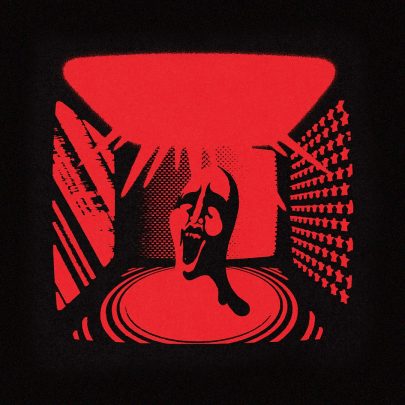Jun 5, 2013 Film & TV
Directed by Baz Lurhmann
In cinemas June 6
There is one shot that makes The Great Gatsby worth every cent of your hard-earned $16.50: the first breathtaking close-up of Leonardo DiCaprio as Jay Gatsby. When he turns to the camera, stars sparkling behind him, the actor’s handsome, time-softened face expresses almost everything Baz Luhrmann wants to convey in his films, from cornball nostalgia to childlike wonder to deep longing. In that brief moment, you gasp, you laugh, you cringe, you sigh. Well, all the ladies in my row did.
F. Scott Fitzgerald’s The Great Gatsby is a slim, subtle novel of hope and illusion. Luhrmann, the Australian film director, was born with fireworks in his fingers and confetti cannons for arms. If it seems an abomination for this particular artwork and artist to come together, hold your fire, for who better than Luhrmann to remake Gatsby, a story of doomed romance amidst filthy-rich, amoral playthings in 1920s New York?
The story has His Bazness written all over it: gaudy parties on Long Island, moonshine-fuelled orgies in Manhattan walk-ups, jazz bands and burlesque babes. Design genius Catherine Martin (Luhrmann’s wife) has a field day with handsome women in beads and feathers and beautiful men in powder-pink suits. And Gatsby has a thread that runs through every Luhrmann-Martin film: lovers who are unsuited to each other in the eyes of society.
Yet as splashy as this version of The Great Gatsby is — I expect the extras are still picking off the glitter — the director has held back in all the right ways. The white-hot soundtrack (a signature Luhrmannism, with help from Jay-Z) sinks into the mix rather than pushing out, and the uneasy parlour scenes between the bombast are the film’s best.
Fitzgerald’s plot is told through the eyes of Nick Carraway (Leo’s real-life BFF Tobey Maguire), an aspiring young writer who has taken a Wall St job and a Long Island cottage for the summer. Across the harbour are his distant cousin Daisy (Carey Mulligan) and her old-money brute of a husband, Tom Buchanan (a creepily excellent Joel Edgerton).
Right next door, through an arch in the wall, is the new-money mansion of the mysterious Mr Gatsby, a lovelorn nobody-from-nowhere who was once engaged to Daisy. Now he’s turned up to claim her heart once more, and this time he’s come prepared: with an in-house Wurlitzer organist, a stupidly large collection of crisply pressed shirts, and a houseful of what seems like all of Hollywood’s set dressers poised to light the thousand or so candles artfully placed in every crevice.
Most people I know who love the novel have said they refuse to see this film. Most of them are men. I would like to entertain a small thesis here (you may prefer to think of it as a broad generalisation): men love the book; women will love the film. But give Baz a chance, old sport. He has solved an important adaptation puzzle: that of Nick Carraway, the male observer through whom the whole sordid tale is told.
Movie voice-overs are clunky at best, however by opening the film with Carraway having checked himself into rehab for “morbid alcoholism” as a result of his summer with this “rotten bunch”, Luhrmann creates a comfortable context for the tale to be told in flashback, and he is faithful to Fitzgerald’s text. (A little too faithful at times; the film really could have done without the corny typewriter text floating across the screen. Talk about putting the “lite” into literary.)
Maguire handles Nick’s moral decline skilfully, and the rest of the cast is dreamy. There’s a healthy helping of Australians, and if you’re the kind of person who notices waiters, you may clock Baz himself taking a spin in front of the camera.
DiCaprio infuses Gatsby with a mercurial temper and a tenuous grasp on reality: an actor playing a man playing a version of what his teenage self-imagined he might become. Gatsby’s best scene, in which Daisy and Gatsby finally meet again at Nick’s cottage, is a thesp-fest of brilliance; DiCaprio’s nervy slapstick an unexpected delight.
Though Mulligan is wonderful, Daisy is as vapid as a reality screen-queen. She’s not really written any other way, neither by Fitzgerald nor Luhrmann. There’s a slight crack in her armour at one point, a fleeting moment where, if she was more in tune with her situation, she’d understand that her choice is not which rich man to be with, but which relationship might be slightly less abusive.
But it suits the vague feeling of detachment overlaying the whole affair. Though the camera swoops into windows and down upon partying crowds, close enough so you can see that the spindly-legged lothario on the dancefloor is the dad from Strictly Ballroom, at all times — even with 3D glasses on — it feels as if we only ever have our nose pressed to the glass. Still, as Tom Buchanan says, “I know you like to watch.”





